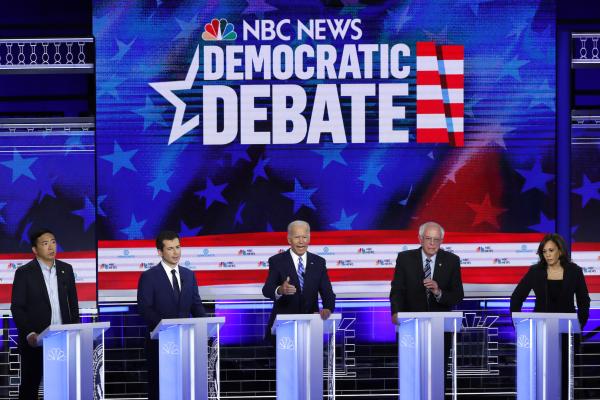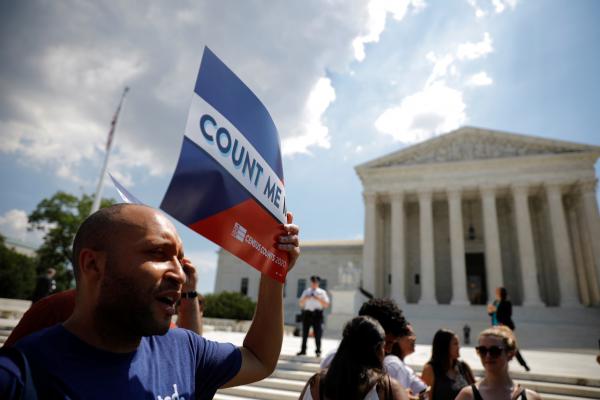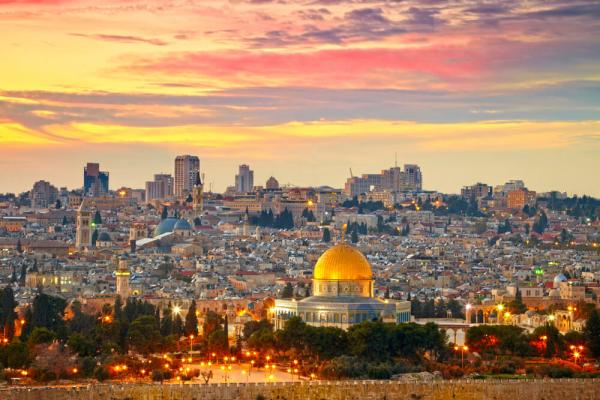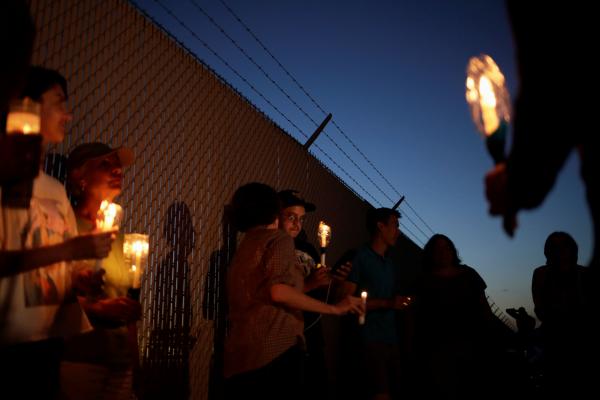I watched both of the Democratic presidential debates over the last two nights, waiting to see if anything related to the invisibility of Indigenous peoples would somehow make its way into the conversation. I didn’t expect it to, of course; in a nation that does not even begin its events with a land acknowledgement (like Canada, Australia, and other nations do), why would we expect that the experiences of the original peoples of this land would come into a debate when each candidate only has a limited time to respond?
Checking in on the Boomers, Hong Kong protests, census politicization, an ESPY-nominated Catholic sister, and more in the Weekly Wrap.
The right to be counted is at the foundation of our faith and our democracy. In Matthew 18:12–14) and Luke (Luke 15:3–7) Jesus tells the iconic parable about the lost sheep. A man, who owns 100 sheep, goes to great lengths to find one missing sheep out of the 100 and when he finally recovers the lost sheep, he is happier about the one sheep that is found than the 99 who are safe. The parable speaks volumes about the degree to which God shows a particular concern and attention around anyone who is lost or falls in harm way. In a similar vein, we should be alarmed and equally committed when one person is miscounted or disregarded in our society. Our democracy loses its integrity and legitimacy when people and communities are made invisible and further marginalized by undercounting in the census.
The ruling, authored by Chief justice John Roberts, delivered a huge setback to election reformers who had hoped the court would intervene over a growing trend in which parties that control state legislatures use the electoral district line-drawing process to cement their grip on power and dilute the voting power of people who support the rival party.
On June 16, the song Sing Hallelujah to the Lord became a popular anthem of the Hong Kong protests against the extradition to China bill. The bill, it is widely believed, would provide the Chinese mainland unchecked power in detaining political dissidents in Hong Kong. This represents yet another flexing of China’s authoritarian rule over the people within its reach, and what some see as a breakdown in the “one-country, two systems” method of governance that has placed Hong Kong at an arms length of Beijing since it was handed over by the British in 1997. The annual July 1 pro-democracy demonstrations in Hong Kong are expected to see a massive turnout.
As a Palestinian Christian who grew up in Jerusalem, I have a hard time knowing where, if anywhere, my narrative fits among the pictures evangelical Christians paint of Israel. I was reminded of this recently when an acquaintance of mine did a “holy land tour,” and posted travel updates that showed up on my social media stream.
Public health professionals strive to bridge the gap between good intentions and good outcomes. Learning about public health will equip Christians to think on a systems level, to have evidence-based programs, champion accountability, and partner with people most affected to accomplish systemic change.
Before the finger pointing and blaming begins let me be clear: This is not a partisan issue. This is not a political issue. This is a moral issue. We have a moral responsibility to ensure that the conditions for every child are not just adequate but are as good as any parent would expect for their own children.
A Border Patrol official told a state lawmaker that the agency doesn't accept donations for facilities where children are reportedly being held in substandard conditions.
In northern Nigeria, the epicenter of insurgency and ethno-religious violence, Christians are the minority and have experienced widespread persecution from terrorists who share the extremist view of creating an Islamic state across northern Nigeria.








